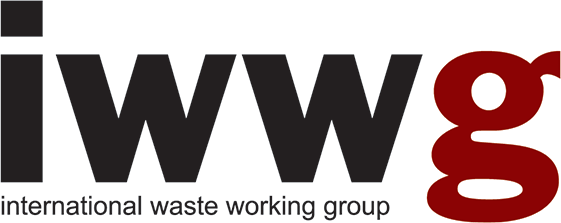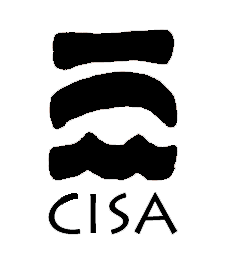GRAIN SIZE-RELATED CHARACTERIZATION OF VARIOUS NON-HAZARDOUS MUNICIPAL AND COMMERCIAL WASTE FOR SOLID RECOVERED FUEL (SRF) PRODUCTION
- Alexander Curtis - Chair of Waste Processing Technology and Waste Management, Montanuniversitat Leoben Department fur Umwelt- und Energieverfahrentechnik, Austria
- Josef Adam - Chair of Waste Processing Technology and Waste Management, Montanuniversitat Leoben Department fur Umwelt- und Energieverfahrentechnik, Austria
- Roland Pomberger - Chair of waste processing technology and waste management, Montanuniversitat Leoben Department fur Umwelt- und Energieverfahrentechnik, Austria
- Renato Sarc - Chair of Waste Processing Technology and Waste Management, Montanuniversitat Leoben Department fur Umwelt- und Energieverfahrentechnik, Austria
- Available online in Detritus - Volume 07 - September 2019
- Pages 55-67
Released under CC BY-NC-ND
Copyright: © 2019 CISA Publisher
Abstract
This article deals with studies on the grain size-related characterization of various types of waste for the production of Solid Recovered Fuel (SRF) for the cement industry. By implementing a suitable combination of the mechanical processes and adjusting the proportions of the waste types used, different properties of SRF in certain parameters can be set. In addition to the process technology, the treated solid waste types themselves have the greatest impact on the final quality of SRF. Here, the practical investigation for the characterization of various grain size classes generated of different solid waste types (packaging waste and commercial waste) used for the production of SRF is described. These investigations have been divided into a series of tests (12) with an industrial waste screen and in further tests with a laboratory screen and chemical analyses of all of the produced grain size classes. The mass distribution of the investigated grain size classes for each type of waste show significant differences. As assumed, the parameters calorific value and dry mass content of all types of waste increase with growing grain size. For most heavy metals and chlorine, no clear trend can be shown. For example, nickel accumulates in the commercial waste types in the grain size class 0 - 20 mm, in the packaging waste in class > 65 mm. The data on waste input material and generation of proper input waste mix is required for production of quality assured and homogeneous SRF for energy recovery in cement industry.Keywords
Editorial History
- Received: 21 Jun 2019
- Revised: 18 Jul 2019
- Accepted: 24 Jul 2019
- Available online: 26 Sep 2019
References
Aldrian, A., Sarc, R., Pomberger, R., Lorber, K.E., Sipple, E.-M., 2016. Solid recovered fuels in the cement industry-semi-automated sample preparation unit as a means for facilitated practical application. Waste management & research: the journal of the International Solid Wastes and Public Cleansing Association, ISWA 34 (3), 254–264. 10.1177/0734242X15622816
Austrian Standards Institute, 2000. DIN 51900-1 Prüfung fester und flüssiger Brennstoffe - Bestimmung des Brennwertes mit dem Bomben-Kalorimeter und Berechnung des Heizwertes - Teil 1: Allgemeine Angaben, Grundgeräte, Grundverfahren (Testing of solid and liquid fuels - Determination of the calorific value with the bomb calorimeter and calculation of the calorific value - Part 1: General information, basic equipment, basic method)
Austrian Standards Institute, 2007. ÖNORM EN 14343 Charakterisierung von Abfällen ― Berechnung der Trockenmasse durch Bestimmung des Trockenrückstandes oder des Wassergehaltes (Characterization of waste - Calculation of waste Dry matter by determination of the Dry residue or water content)
Austrian Standards Institute, 2011a. ÖNORM EN 15415-1 Feste Sekundärbrennstoffe - Bestimmung der Partikelgrößenverteilung Teil 1: Siebverfahren für kleine Partikel (EN 15415-1 Solid recovered fuels - Determination of particle size distribution Part 1: Screening method for small particles). Österreichisches Normungsinstitut (ON), Wien. (Last access: 6 February 2019)
Austrian Standards Institute, 2011b. ÖNORM EN 15411 (ICP-MS Feste Sekundärbrennstoffe - Verfahren zur Bestimmung des Gehaltes an Spurelementen (As, Ba, Be, Cd, Co, Cr, Cu, Hg, Mo, Mn, Ni, Pb, Sb, Se, Tl, V und Zn) (Solid secondary fuels - Method for determining the content of trace elements (As, Ba, Be, Cd, Co, Cr, Cu, Hg, Mo, Mn, Ni, Pb, Sb, Se, Tl, V and Zn)
Bundeskanzleramt, 2010. Austrian Incineration Ordinance https://www.ris.bka.gv.at/GeltendeFassung.wxe?Abfrage=Bundesnormen&Gesetzesnummer=20002239 (Last access: 27. march 2019)
Feil, A., Pretz, T., 2018. Unused potential in waste processing. Recy & DepoTech 2018_ conference book presentations.pdf, in: Recy & DepoTech 2018_ conference book presentations , Vol. 1, 153-160
IFE Aufbereitungstechnik GmbH, 2019. Waste screens: Brochure Waste screens. Last access: 31 January 2019
Lorber, K.E., Sarc, R., Aldrian, A., 2012. Design and quality assurance for solid recovered fuel. Waste management & research : the journal of the International Solid Wastes and Public Cleansing Association, ISWA 30 (4), 370–380. 10.1177/0734242X12440484
Mauschitz, G., 2018. Emissionen aus Anlagen der Österreichischen Zementindustrie Berichtsjahr 2017 (Emissions from Austrian cement industry reporting year 2017). Available online at: https://www.zement.at/beton-2/nachhaltigkeit-und-umwelt/emissionen. (Last access: 01 march 2019)
Sarc, R., Lorber, K.E., 2013. Production, quality and quality assurance of Refuse Derived Fuels (RDFs). Waste management (New York, N.Y.) 33 (9), 1825–1834. 10.1016/j.wasman.2013.05.004
Sarc, R., Lorber, K.E., Pomberger, R., Rogetzer, M., Sipple, E.M., 2014. Design, quality, and quality assurance of solid recovered fuels for the substitution of fossil feedstock in the cement industry. Waste management & research : the journal of the International Solid Wastes and Public Cleansing Association, ISWA 32 (7), 565–585. 10.1177/0734242X14536462
Sarc, R, Pomberger, R, Eferdinger, S., 2015. „REUQ-Ausweis“ für EBS Entwicklung eines Ressourcen-, Energie-, Umwelt-, Qualitätsausweises (REUQ) für Ersatzbrennstoffe (EBS) (“REUQ certificate” for SRF Development of a resource-, energy-, environmental-, quality certificate (REUQ) for solid recovered fuels (SRF), Association of Austrian Waste Management Companies (VÖEB)), Verband Österreichischer Entsorgungsbetriebe (VÖEB), Wien, Austria




